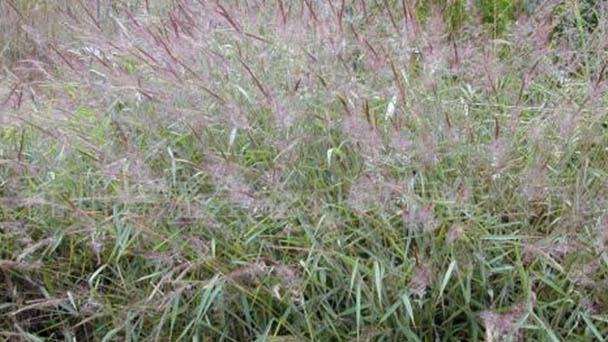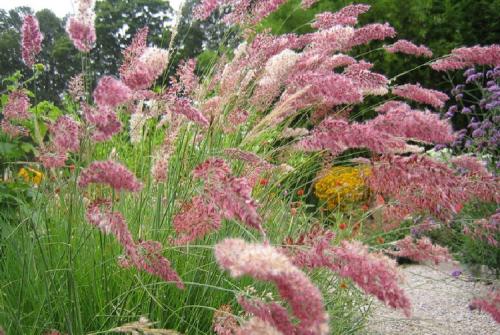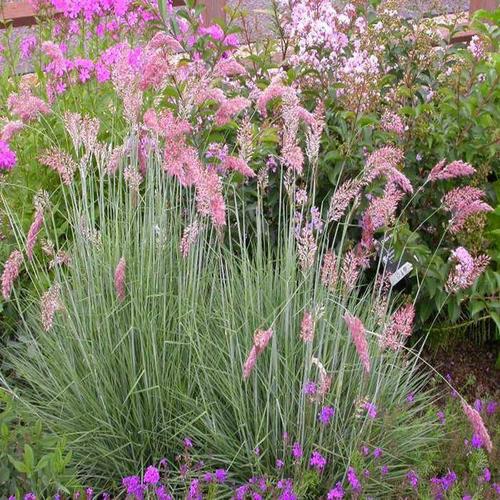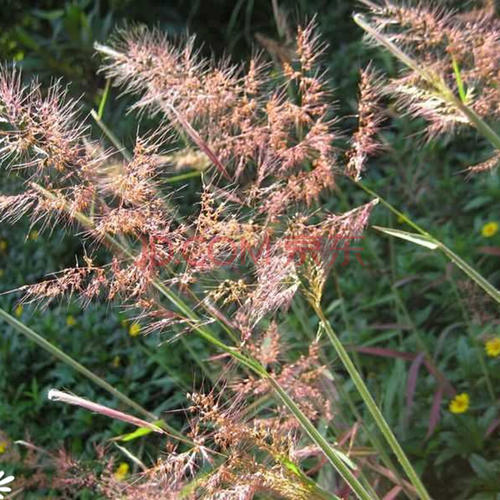Molasses grass (Melinis minutiflora) profile
Written by Maggie
Aug 31 2021

Molasses grass (Melinis minutiflora) is native to tropical Africa and Brazil. Quoted from Australia in 1974, 1991 by the National Forage Grass Variety Approval Committee approved, named as Yueyin No.1 molasses grass. Molasses grass is a good forage for cattle, which can be used for grazing, green feeding, making hay or mixing silage, and it is also an excellent grass species for water and soil conservation.
Molasses grass picture

Molasses grass common names
Brazilian stink grass
calinguero
Wynne grass
Greasy grass
International Common Names
English: Brazilian stink grass; Brazilian stinkgrass; honey grass; stink grass; Whynne grass
Spanish: capin melado; chopín; pasto miel; yaraguá; yerba melado; zacate gordura
French: herbe à miel; herbe molasses
Chinese: tang mi cao
Local Common NamesAustralia: stink grass; stinkgrass
Brazil: capim gordura; capim melado; capim-cabelo-de-negro; capim-catingueiro; capim-de-frei-luiz; capim-gordo; capim-graxa; capim-meloso; catingueiro
Chile: hierba de melado
Costa Rica: calinguero
Cuba: cantingueiro del Brasil; capín gordura
Germany: Fettgras; Melassegras
Italy: melinide
USA: greasy grass
Venezuela: capín melao; capín meñao; catinguero
Molasses grass characteristics
Molasses grass is a perennial extended-form grasses with large loose grass stems and shallow roots. The stem is hairy, the plant height is 1.0 ~ 1.8m, the leaf culm is wide strip to narrow lanceolate, and the length is 10 ~ 15cm.0.7 -- 1.2m wide, full of dense sticky villi, red, sticky secretions, with a strong syrupy sweet taste. molasses grass is suitable for well-drained soil between latitude 30 degrees and rainfall 800-1800mm. The optimum growth temperature is 20 ~ 30℃, and the average temperature of the coldest month is not less than 6°C. Molasses grass is sensitive to frost, sustained frost will kill. Molasses grass is a pioneer in grassland improvement and water conservation, but it is not resistant to salt and alkali, fire and continuous reharvest .Molasses grass grows fast and can be mowed 4 ~ 5 times a year. The annual dry matter yield of forage grass is 0.5 ~ 0.7 tons/acre.

The ecology of Molasses grass
Molasses grass grows well on poor soils and can tolerate acid clays. Molasses grass is highly competitive and is often mixed with other competitive plants. Molasses grass is an excellent plant for reclamation and water conservation.
The distribution of Molasses grass
Molasses grass distributes in Hainan, guangdong, guangxi, fujian in the south of the serious soil erosion areas.
The Molasses grass method of propagation
Seed propagation, broadcast and drill sowing, the sowing amount per acre 0.5 kg. Molasses grass is a good forage for cattle, which can be used for grazing, green feeding, making hay or mixing silage, and it is also an excellent grass species for water and soil conservation.
Molasses grass growing methods
Molasses grass is most suitable for spring sowing in spring. The sowing field must be cleared of weeds, shallow turning and shallow raking. The seeding amount per mu is 0.1~0.5kg, the seeding amount is less, and it is not easy to sow evenly, so the fine sand and fine soil or sawdust rice husk are mixed with the seeds after sowing, and the seeding is crushed once, so that the seeds with seta are close to the soil, easy to absorb moisture, and avoid the seeds being blown away by the wind. Molasses grass can also be drilled with row spacing of 60 cm and sowing depth of 1cm. Seedling transplantation or split propagation. Cutting was carried out in spring. Two to three sections of the old stems were cut with a length of about 10 cm, and the survival rate was high .Mowing 4~5 times a year, the yield of fresh grass per mu is 1500~3000kg. The stubble height is 15~20 cm. When the regenerated grass grows to 35~45cm, it can be grazed again. Nitrogen topdressing can improve yield and quality.

Latest Updated
- Benefits of Bugleweed - 7 Science-backed Health Benefits
- Bugleweed Dangers & Side Effects - Is It Poisonous?
- How to Plant Evergreen Trees - What You Should Know
- When to Plant Evergreens - Grow Guide for Evergreen Trees
- 12 Wonderful Evergreen Shrubs for Your Garden
- 12 Popular Evergreen Plants with Pictures for Beginners
- When And How To Prune A Lilac Bush Like a Pro
- How to Grow & Care for Lilac Vine (Hardenbergia Violacea)
- Japanese Lilac Tree (Syringa Reticulata) Care & Propagation Guide
- Shumard Oak Pros and Cons - What to Know
Popular Articles
- Winter maintenance of Antirrhinum Majus
- How to Grow Terminalia Mantaly Tree
- How to Grow and Care for Crossostephium Chinense
- How to grow Antirrhinum Majus in spring
- Peristeria Elata (Dove Orchid) Profile: Info & Care Guide
- Underwatered Snake Plant (Sansevieria Trifasciata) - Signs And How To Fix
- How to Care for Brazilian Jasmine Plant (Mandevilla Sanderi)
- How to Grow & Care for Graptopetalum Purple Delight in Summer
- Rosa Chinensis (China Rose): Plant Growing & Care Tips
- How to Care for Baby Sun Rose (Aptenia Cordifolia)